Trendsetter David Bowie and what he did first in the music industry
- Published
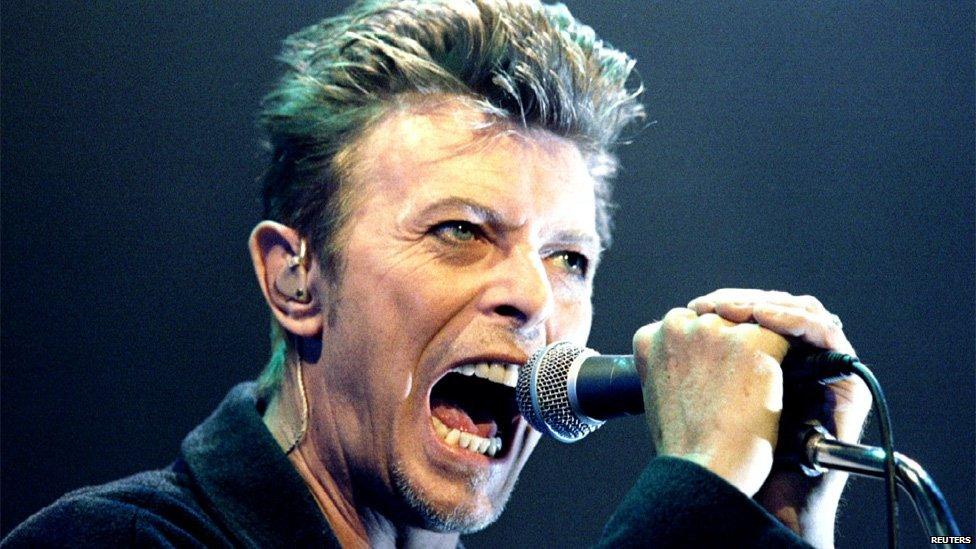
David Bowie's last live performance was in 2006
Everyone's talking about the death of David Bowie and the impact his career had on millions of people around the world.
The singer, actor and icon influenced fans and artists alike.
He creatively explored a number of musical genres and his 25th album called Blackstar was released on Friday, the day he turned 69.
But while he probably isn't the first to release an album on a birthday, he WAS the first to do a range of other things...
Long hair
The 17-year-old and his friends chose to come together as a slightly tongue in cheek group called The Society for the Prevention of Cruelty to Long-Haired Men., external
He was the first to fight for the right to have long hair on national television in 1964.
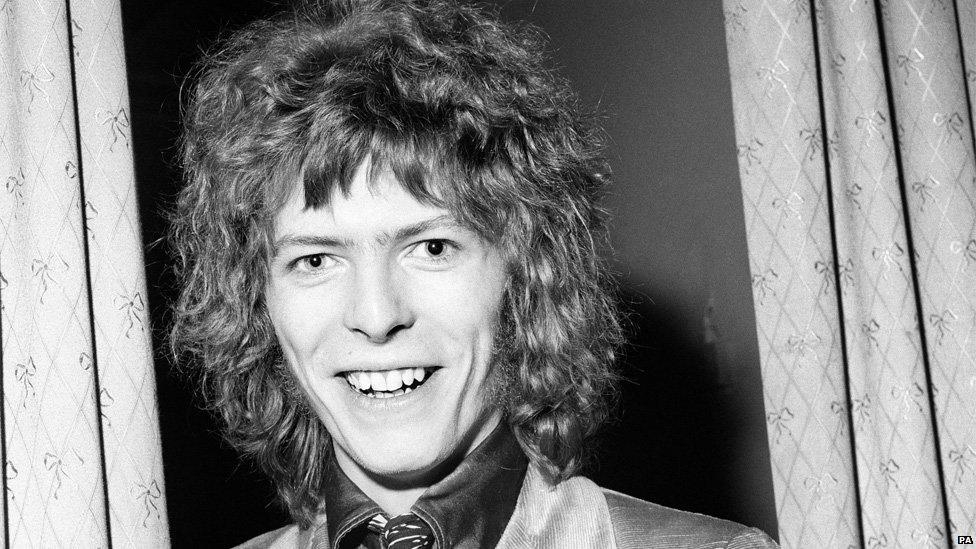
Speaking to TV presenter Cliff Michelmore on BBC Tonight, he spoke out about the poor treatment that men received because of their long locks.
Bowie said: "I think we're all fairly tolerant but for the last two years we've had comments like 'Darling!' and 'Can I carry your handbag?' thrown at us, and I think it just has to stop now.
A 17-year-old Bowie defended men with long hair on the BBC's Tonight, in 1964
"I think we all like long hair, and we don't see why other people should persecute us because of this."
Internet-only release
In 1996, Bowie broke new ground with the first internet-only release Telling Lies.
It's estimated that it took more than 11 minutes to download over an old school dial-up internet connection.
But at least it would have been faster than buying the single - which wasn't released until two months later.
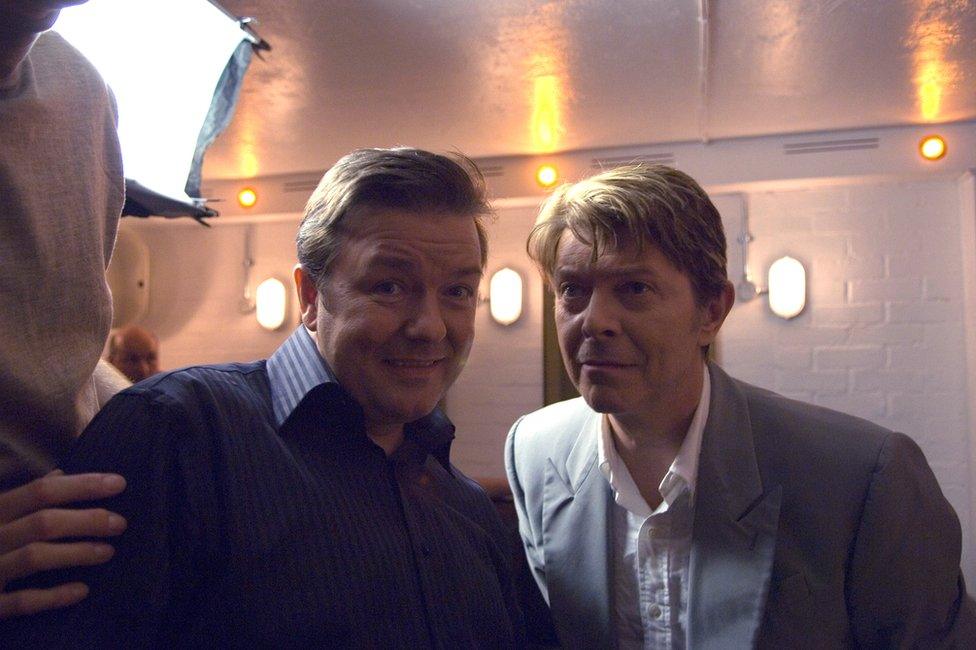
David Bowie appeared on BBC series Extras with Ricky Gervais (who played Andy Millman) in 2006
'BowieNet'
Bowie was the first musician to create an internet service provider.
BowieNet was launched in 1998 and could be accessed by visiting davidbowie.com.
It offered users a customisable home page, a davidbowie.com email address, access to music, news, sports, entertainment and more, all for a small monthly fee.
'Multiple re-inventions'
Above all else, David Bowie is known for being what some would called an "artistic chameleon".
The star was born as David Jones and later renamed himself "David Bowie" in 1966 to avoid confusion with Davy Jones, the lead singer with Beatles rivals The Monkees.
Illustrator Helen Green pays tribute David Bowie., external
He is the first celebrity to have continuously reinvented himself by adopting a number of personas throughout his creative career.
His first recognised alter ego, Ziggy Stardust, was introduced in 1972 and came with the release of The Rise and Fall of Ziggy Stardust and the Spiders from Mars.
The album included hits like Starman, Suffragette City and Rock 'n' Roll Suicide and featured the sexually ambiguous Ziggy, which brought Bowie worldwide stardom.
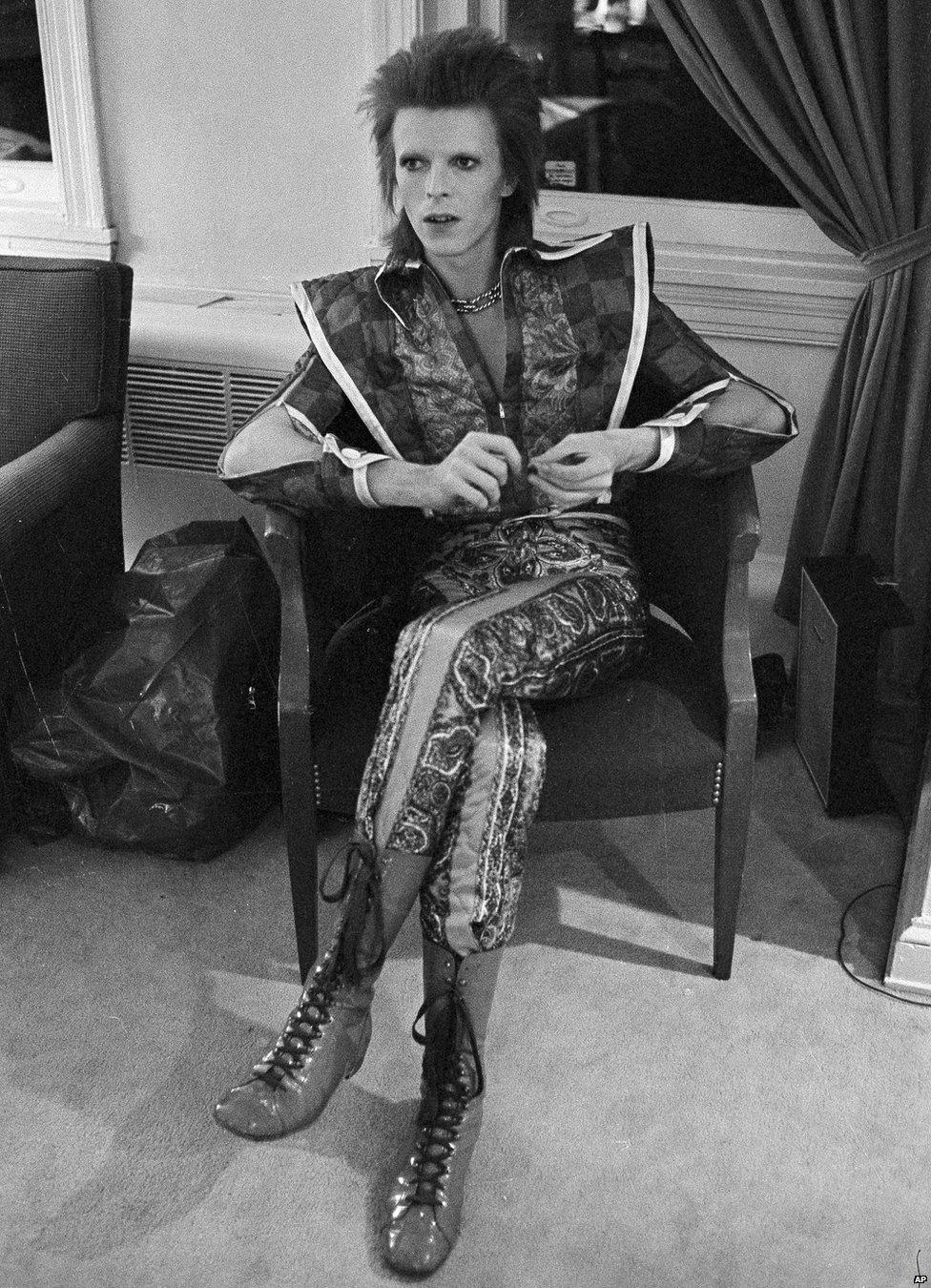
David Bowie in his Ziggy Stardust period pictured in Philadelphia in 1972
In 1973 David Bowie, or Ziggy Stardust, became Aladdin Sane as he released his sixth "self-titled" album which includes hits such as The Prettiest Star and The Jean Genie.
Aladdin Sane's presence came from Bowie's mixed feelings of his experience of Ziggy's journey. This led to "a lad insane" being born.
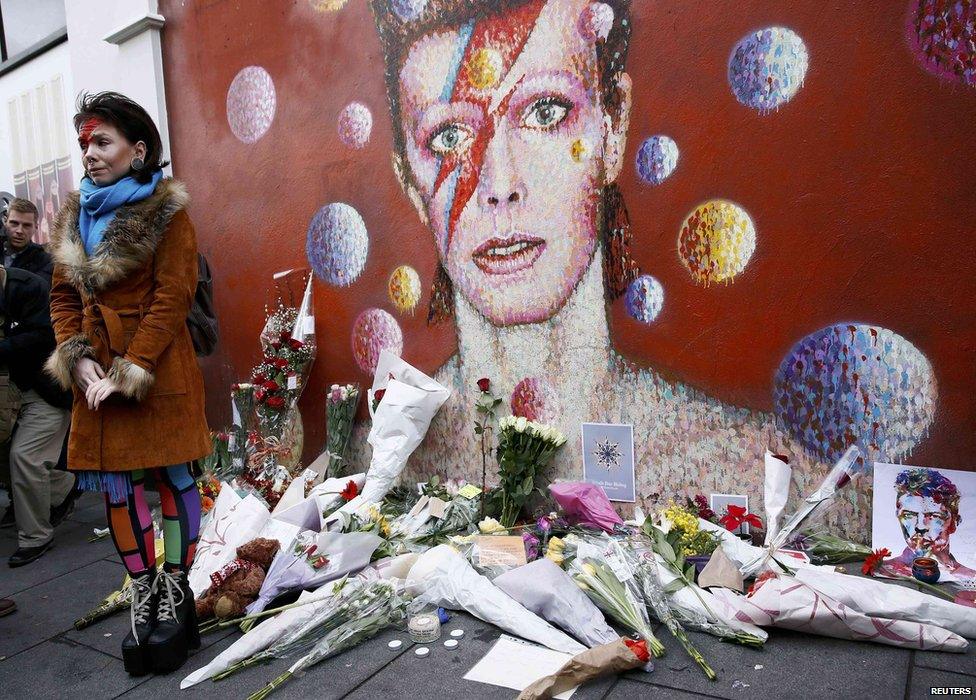
A fan stands next to a David Bowie mural in Brixton, where he was born
Keeping up?
After Aladdin Sane, the Thin White Duke came along in 1976, who was identified with Bowie's album Station to Station.
Several artists have since adopted a persona as part of their musical careers.
Beyonce established herself as Sasha Fierce and Lady Gaga introduced us to her alter ego Jo Calderone at the 2011 MTV Video Music Awards.
For more stories like this one you can now download the BBC Newsbeat app straight to your device. For iOS go here, external. For Android go here, external.